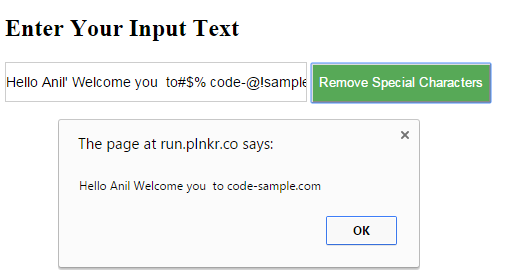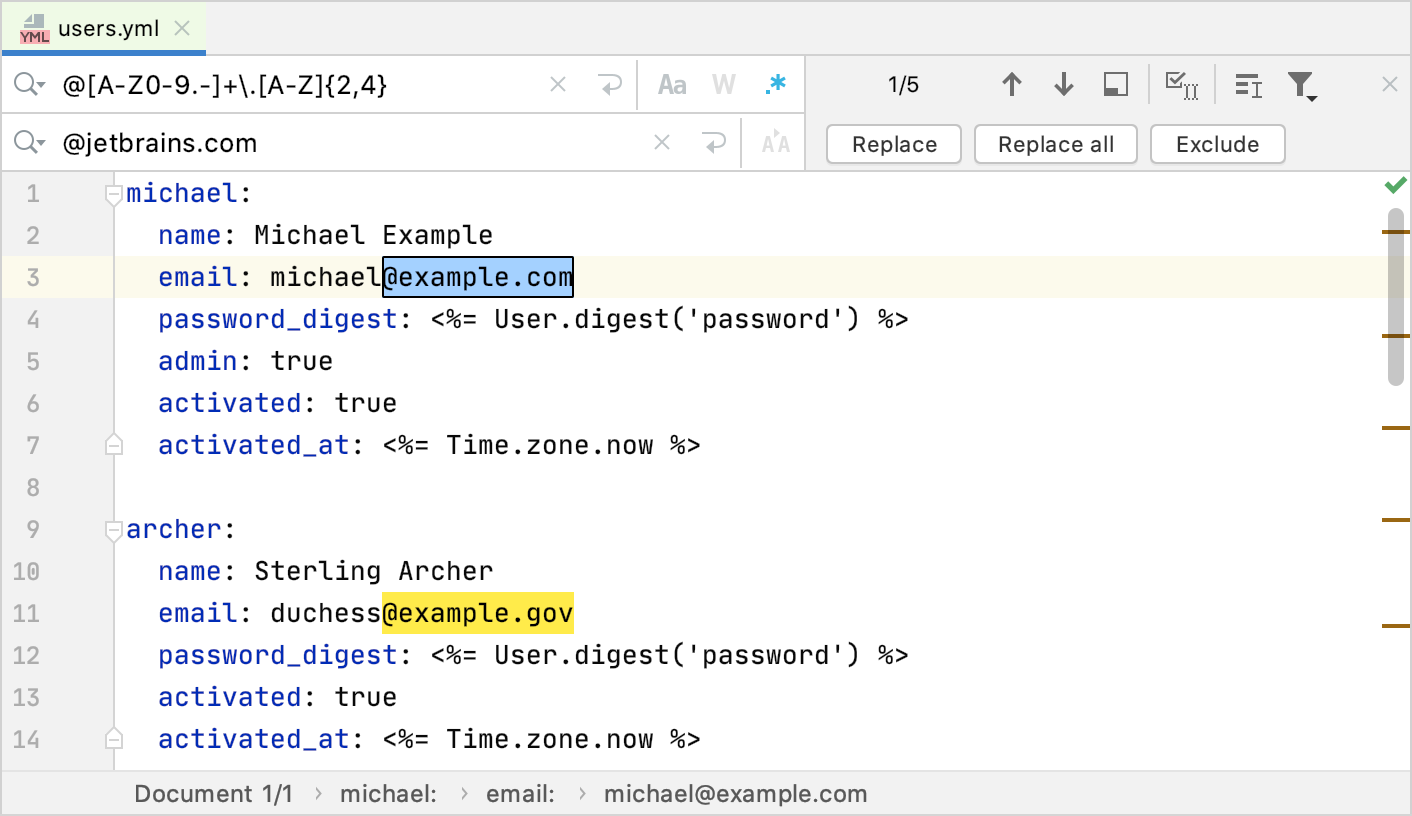

replace means we can replace patterns and not just exact characters. RegEx can be effectively used to recreate patterns. replace method used with RegEx can achieve this. What if we're concerned with a pattern instead? Maybe, a number, two letters, and the word "foo" or three symbols used together? replace above is limited: the characters to be replaced are known - "ava". It is often used like so: const str = 'JavaScript' Īs you can see above, the replace method accepts two arguments: the string to be replaced, and what the string would be replaced with. replace method is used on strings in JavaScript to replace parts of string with characters. With RegEx, you can match strings at points that match specific characters (for example, JavaScript) or patterns (for example, NumberStringSymbol - 3a&). Regular Expressions (also called RegEx or RegExp) are a powerful way to analyze text.

var str = 'Add 1/4 cup of sugar and 1/2 cup of blueberries.' Our next example replaces fractions with their decimal equivalents. Sometimes you may want to do something completely custom when replacing text, something that not even regex can handle. You can do some amazing things, but that’s an entire post (if not an entire book) of its own. We’ve barely scratched the surface of what can be done with regex. $1 is replaced with whatever was matched in the first set of parenthesis, $2 with what’s in the second, and so on. Each one is wrapped in parenthesis (), which lets us reference them in the replacement string. \d is a special regex element that matches any single digit, so we use 3 of those to find 3 digit numbers. "Your winning cash 3 number is 4-1-9." var str = 'Your winning cash 3 number is 419.' The following looks for 3 digit numbers and replaces them with the same number, but with dashes between the digits. And you probably spotted the i flag, which makes the replacements case insensitive. The | element lets us create an “or” list of terms. "Waiting on someone, someone, and someone." replace ( / zoe |elena |cal / gi, 'someone' ) var str = 'Waiting on Zoe, Elena, and Cal.' While we’re at it, let’s solve that case-sensitivity issue from earlier. For example, replacing multiple words at once. Opening the door to regex lets us do more interesting things.
#JAVASCRIPT REGEX REPLACE PLUS#
"1 plus 1 plus 1 = 3" Doing More with Regex We’re dealing with regex now, so don’t forget to escape characters that have special meaning or you’ll get weird syntax errors. replace ( new RegExp (substr, 'g' ), 'mushroom' ) But what if you want to specify a string to replace via a variable, instead of hardcoding “badger”? It’s a little more typing, but not hard to do with a RegExp object. That’s what makes it a global search, finding all occurrences. To replace all occurrences, you’ll want to use the regex flavored version of replace(). There is one major caveat: this approach only replaces the first occurrence. Searching for “Salt” in the above example would come up empty. It’s worth mentioning that this approach is case sensitive.

Replace() does not change the value of str, rather it returns a new string with the applied replacements (this example doesn’t do anything with the returned string, but you’d probably want to). The most obvious way to do string replacement is by passing 2 strings to replace(), the string to find and the string to replace it with.


 0 kommentar(er)
0 kommentar(er)
